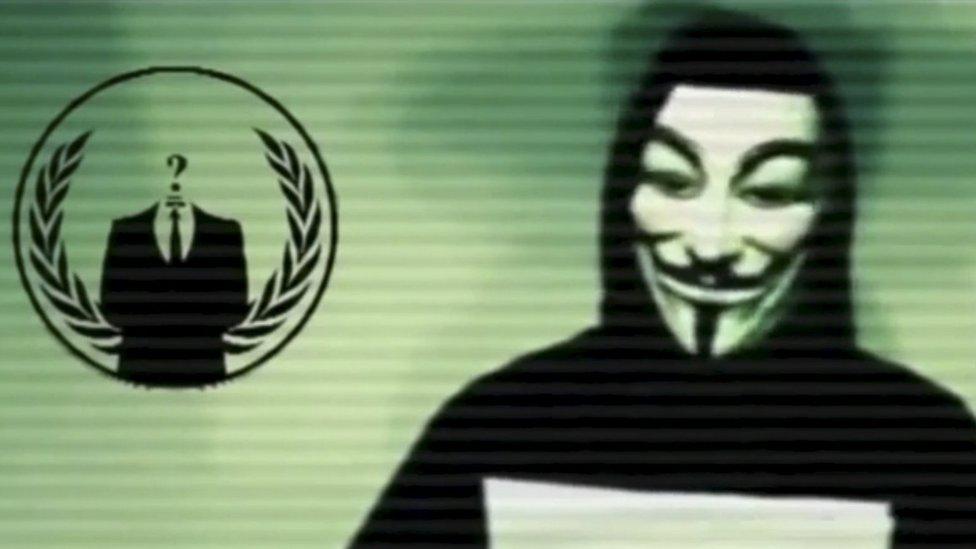Anonymous wants you to try hacking Islamic State sites - here's why you probably shouldn't
- Published

Anonymous "declared war" on so-called Islamic State following the deadly attacks in Paris.
As part of its "cyberwar" on IS, the hacker group has now released several guides aimed at teaching us all how to break into IS websites and attack the network's social media accounts.
It's part of Operation Paris, or #OpParis, and one document is called a Noobguide for beginners.
Newsbeat speaks to experts about what this means for those tempted to try.
A tweet from the official #OpParis Twitter account., external
Prof Tim Watson, director of the cybersecurity centre at the University of Warwick, says Anonymous is providing "a valuable counter-narrative" to what Islamic State is promoting online.
'Independent thinkers'
He tells Newsbeat the hacker group has great strengths because it's not "from the establishment" and is made up of "independent thinkers" so they can reach audiences which may normally feel disconnected.
But while its actions may be "well meant", Prof Watson questions their call for hacking "noobs" (newbies) to join in for the following reasons.
1. You'd be breaking the law
Pure and simple, hacking a computer is illegal.
There are laws that mean you could be put into prison for up to 10 years for misusing a computer system.
2. You could be traced
Prof Watson says: "We would not ask the public to help out with a hostage situation or a drugs raid - they would get in the way and may get injured.
"The same is true here.
"Even specialists find operation security difficult, so someone who picks up a 'how to' guide and tries to follow it will almost certainly give enough information away for them to be identified."
Find out why Islamic State has different names., external
Potentially the people running an Islamic State website or social media account could trace your IP address - that means working out who you are and where you are.
3. Some accounts should be left alone
Prof Watson says some will be left active deliberately, to allow security services to monitor what could turn into terrorist activity.
He explains: "I'm not party to any decision making, but you can imagine specialists will deliberately leave certain channels open because they provide useful sources of intelligence.

"Those channels might be the ones that are shut down by well-meaning people if they follow Anonymous' instructions."
Still want to help? Here are some legal things you can do
* If you spot someone on Facebook or Twitter abusing the terms of service then you can report them, safely and anonymously.
* It's the same if you spot someone who is misusing websites. You can report them to the internet owner or the relevant internet authorities.
* Prof Watson says be creative and use your voice to counter some of the things which are said by IS.
However, he warns: "You are raising your head above the parapet, so you need to be careful what you are saying.
"I would not advise anyone to say anything strong against an organised group who have shown they are willing to use violence."
For more stories like this one you can now download the BBC Newsbeat app straight to your device. For iPhone go here, external. For Android go here, external.